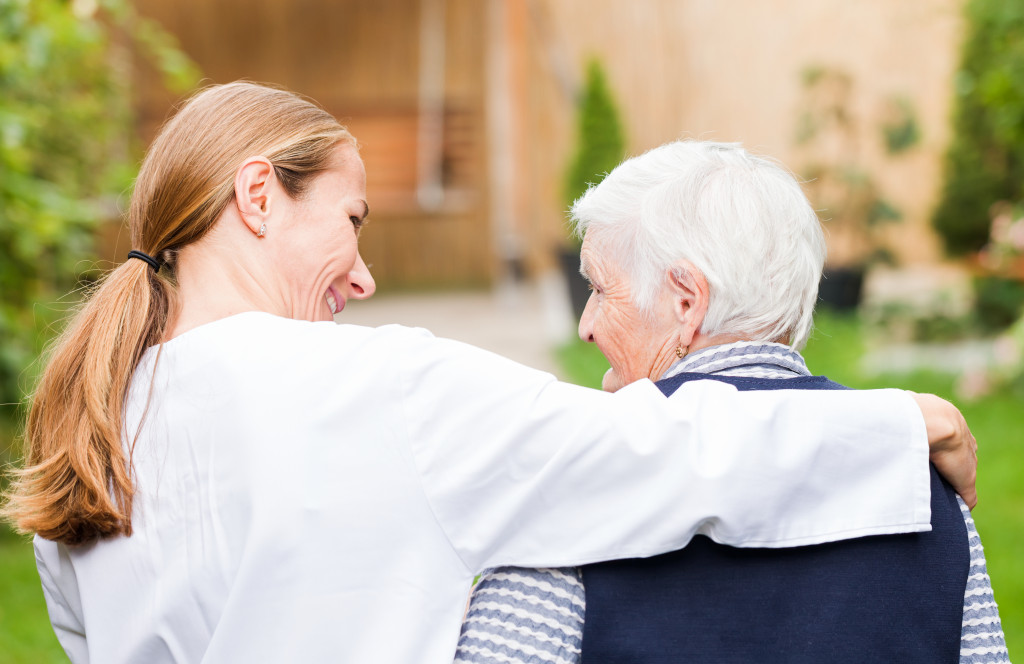There are a million things to think about when caring for an older adult. From providing safe, comfortable living arrangements to ensuring they get the nutrition and socialization they need, caregivers have their hands full. But the rewards of caring for an elderly loved one can be significant. Caring for someone who has seen and experienced a lot in life can be fascinating and inspiring.
Here are our top 10 tips for making the most of this rewarding but challenging role:
1. Do Your Research
One of the best things you can do as a caregiver is to educate yourself about critical care at different life stages. There are plenty of resources available, both online and in print, to help you learn what to expect. This information will help you provide the best possible care for your loved one, and it will also give you a better understanding of what they are going through.

2. Establish A Routine
A routine is key for both the caregiver and the elderly loved one. It helps to keep everyone organized and on track, and it can provide a sense of stability in an otherwise uncertain world. Be sure to include time for meals, activities, and rest in the routine. Routine also helps to minimize stress for both parties.
3. Get Help When You Need It
It’s important to remember that you are not alone in this. There are plenty of people who can help you out, including friends, family members, and professionals. Don’t be afraid to ask for help when you need it — it’s what they are there for. There are medical home health care services that can also provide assistance.
4. Create A Support Network
A support network is a great way to get the help you need, as well as to provide socialization for your elderly loved one. Encourage friends and family members to visit often and look into local senior centers or other social programs that your loved one might enjoy. A support network can also provide a valuable respite for the caregiver.
5. Stay Organized
One of the biggest challenges of being a caregiver is staying organized. There are many things to keep track of, and it can be easy to let things slip through the cracks. Make sure you have a system in place for keeping track of appointments, medications, and other important information. Organize your time so that you can fit in everything that needs to be done.
6. Take Care Of Yourself
It’s easy to let your own health take a backseat when you are busy caring for someone else. But it’s important to make time for yourself, too. Get regular exercise, eat a healthy diet, and make sure you get enough rest. This will help you stay strong both physically and mentally.
7. Set Limits
It’s important to set limits for yourself as a caregiver. You can’t do it all, and you need to make sure you take time for yourself. Don’t be afraid to say no when someone asks for help — you need to reserve time for your own needs, as well. Limit the amount of stress you take on. Don’t try to do everything yourself. Take some time to relax and recharge.
8. Take Advantage Of Technology
Technology can be a huge help when caring for an elderly loved one. There are now a number of great apps and online tools that can make things like medication management and record-keeping much easier. Check out what’s available and see what might work for you.
9. Stay Positive
Caregiver burnout is a real danger for anyone caring for an elderly loved one. But it’s important to stay positive and focus on the good things. Remember the reasons you decided to become a caregiver in the first place and keep your eyes on the future. Positive thinking will help you get through the tough times.
10. Enjoy The Moments
The moments you spend with your elderly loved one are precious. Soak up every second and enjoy them to the fullest. They won’t be around forever, so make the most of the time you have together. Enjoy the good moments and find the strength to deal with the tough ones.
Caring for an older loved one is rewarding but also very demanding. It’s important to remember that you are not alone in this, and there are plenty of people who can help you out when you need it the most. One of the best things caregivers can do is educate themselves about caregiving at different life stages, so they know what to expect. Hope this article was helpful!

